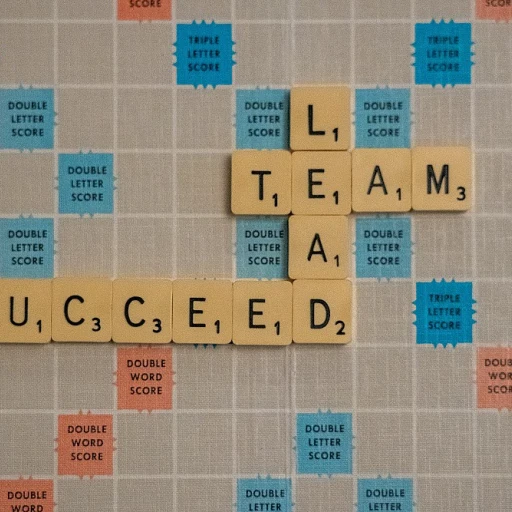
Understanding the Role of a Talent Coordinator
Exploring the Responsibilities of a Coordinator in Tech
In today's fast-paced tech industry, the role of a talent coordinator is pivotal. They bridge the gap between human resources and business development, ensuring that tech companies acquire skilled professionals who can drive innovation and performance forward. Essentially, these coordinators are entrusted with managing the entire hiring process from start to finish.
In tech hiring, a talent coordinator must possess a keen understanding of the specific skills required for various job postings. They work closely with recruitment teams and managers to identify and attract top talent, all while maintaining a focus on both immediate job needs and long-term talent acquisition goals. It is crucial for these coordinators to have a balance of technical knowledge and interpersonal skills, as they often liaise between different departments and pay attention to employee relations.
The job of a coordinator also entails a variety of administrative tasks. This includes managing resumes and applications, coordinating interviews, and handling communication with job applicants. They need to be quick thinkers and strategic planners, as they identify potential candidates and ensure they align with the company’s goals and culture. In the tech sector, where roles frequently evolve, being adaptable is an essential trait for success in a coordinator position.
Learn more about the evolving landscape of tech hiring and how it impacts the role of a talent coordinator.
Key Challenges in Tech Talent Management
Challenges in Tech Talent Coordination
Managing tech talent presents its unique challenges and demands a strategic approach to harnessing resources effectively. With the rapid evolution of technology, talent coordinators are confronted with various obstacles, primarily stemming from the industry's dynamic nature.- High Competition for Skilled Talent: The tech industry in the United States, and notably regions like New York, has become highly competitive. Organizations are often vying for the same pool of skilled professionals. This scenario demands coordinators to not only identify the right candidates but also ensure that their offer is attractive in terms of career development, compensation, and work culture.
- Evolving Skill Sets and Job Roles: The fast-paced tech landscape requires constant upskilling and recalibration of job roles. Talent coordinators must stay abreast of emerging technologies and skills to align recruitment strategies with future business needs. Adapting to these evolving requirements is crucial for effective talent acquisition and management.
- Balancing Technical and Soft Skills: While technical proficiency remains a priority, coordinators must also value soft skills such as communication, collaboration, and adaptability. Human resource strategies should incorporate a balanced evaluation of both, ensuring candidates can thrive in dynamic and diverse environments.
- Streamlining Administrative Processes: Ensuring efficient administrative processes in talent management can be a daunting task. Recruitment coordinators often manage large volumes of job postings and applications. Implementing a robust performance management system can help in tracking progress and improving efficiency.
- Cultural Fit and Employee Retention: Beyond hiring, maintaining employee satisfaction and retention is critical. This involves cultivating a work environment that resonates with the organization's culture and values. Considering cultural fit not only aids in recruitment but also enhances employee relations and performance.
Effective Recruitment Strategies
Developing an Efficient Recruitment Framework
Recruiting top talent in the tech industry requires more than just posting job ads and scheduling interviews. It involves a comprehensive approach that incorporates various strategies to attract the right candidates. Talent coordinators need to collaborate with hiring managers and recruitment coordinators to ensure an effective recruitment framework that aligns with the company's goals and values. An effective strategy begins with understanding the specific skills required for each position. In tech, roles often demand highly specialized technical skills that vary between jobs. Therefore, a detailed analysis of job titles and their corresponding skills is crucial in the recruitment process. Business and human resources teams can support this by crafting precise job descriptions that clearly outline the roles and responsibilities, as well as the skills and experience needed. Another important aspect of recruitment is implementing diverse sourcing channels. This not only increases the reach but also attracts talent from varied backgrounds. Leveraging online platforms and professional networks is common practice, yet building relationships through industry events and tech communities can significantly broaden the talent pool. Incorporating public relations and marketing efforts can also enhance the company brand, making it more appealing to prospective candidates. Talent coordinators should work closely with management coordinators and talent managers to streamline these processes, utilizing data analytics to track the effectiveness of their sourcing strategies and make informed decisions. Regular performance assessments and feedback loops are vital to continually refine and optimize the recruitment strategy. In today’s evolving work environment, coordinators must also prepare for hybrid work models. Addressing potential challenges and capitalizing on the advantages can vastly improve the recruitment experience for both the recruiter and the candidate. For more insights on handling hybrid work challenges, explore this comprehensive guide on hybrid work safety challenges. By focusing on these essential recruitment strategies, companies can better position themselves to attract and retain high-caliber tech professionals.The Importance of Cultural Fit
Fostering the Right Cultural Environment
In the fast-paced world of tech hiring, ensuring a good cultural fit is as crucial as evaluating technical skills. A talent coordinator plays a pivotal role in assessing whether potential hires will thrive within the company’s unique environment. This aspect of talent management goes beyond matching a job title to a resume; it involves understanding the nuances of employee relations and how individuals align with the company's values and mission.
For talent coordinators, the challenge lies in balancing the technical requirements of a job with the softer elements of human resources. This means working closely with management and other departments to develop a comprehensive profile of what a successful candidate looks like, beyond just their technical skills. The goal is to support not only the immediate needs of the business but also its long-term development and growth.
Here are some key considerations for ensuring cultural fit:
- Communication Skills: Evaluate how candidates communicate and collaborate, especially in diverse teams.
- Values Alignment: Assess whether a candidate’s personal values align with the company’s mission and vision.
- Adaptability: Consider the candidate's ability to adapt to changes and new challenges, which is crucial in tech environments.
- Team Dynamics: Analyze how a candidate will fit into existing team structures and contribute to a positive team culture.
By focusing on these areas, talent managers and recruitment coordinators can ensure they are not only filling jobs but also building a workforce that is cohesive and aligned with the company's strategic goals. This approach is essential for maintaining high employee performance and satisfaction, ultimately leading to a more innovative and productive work environment.













